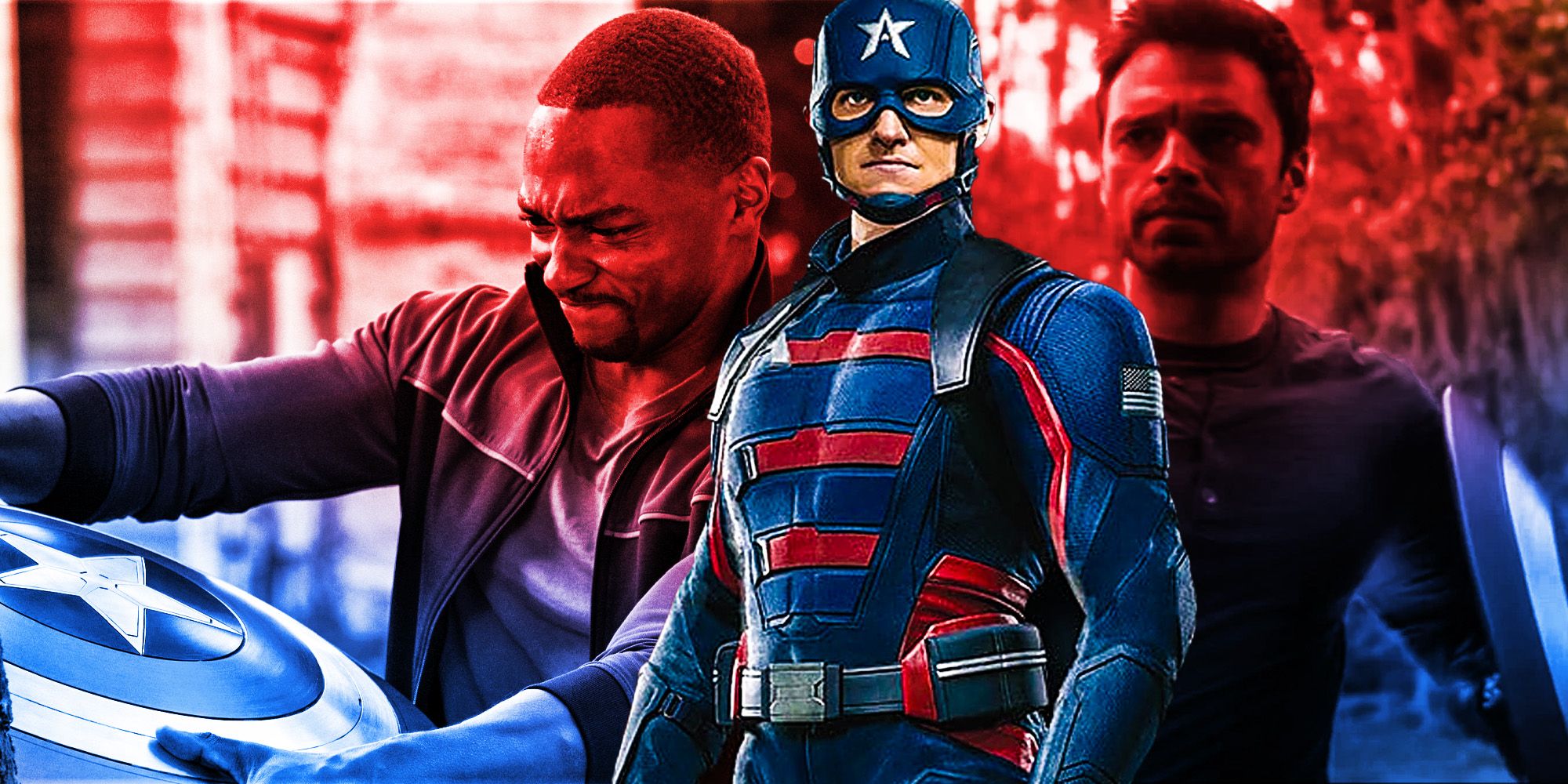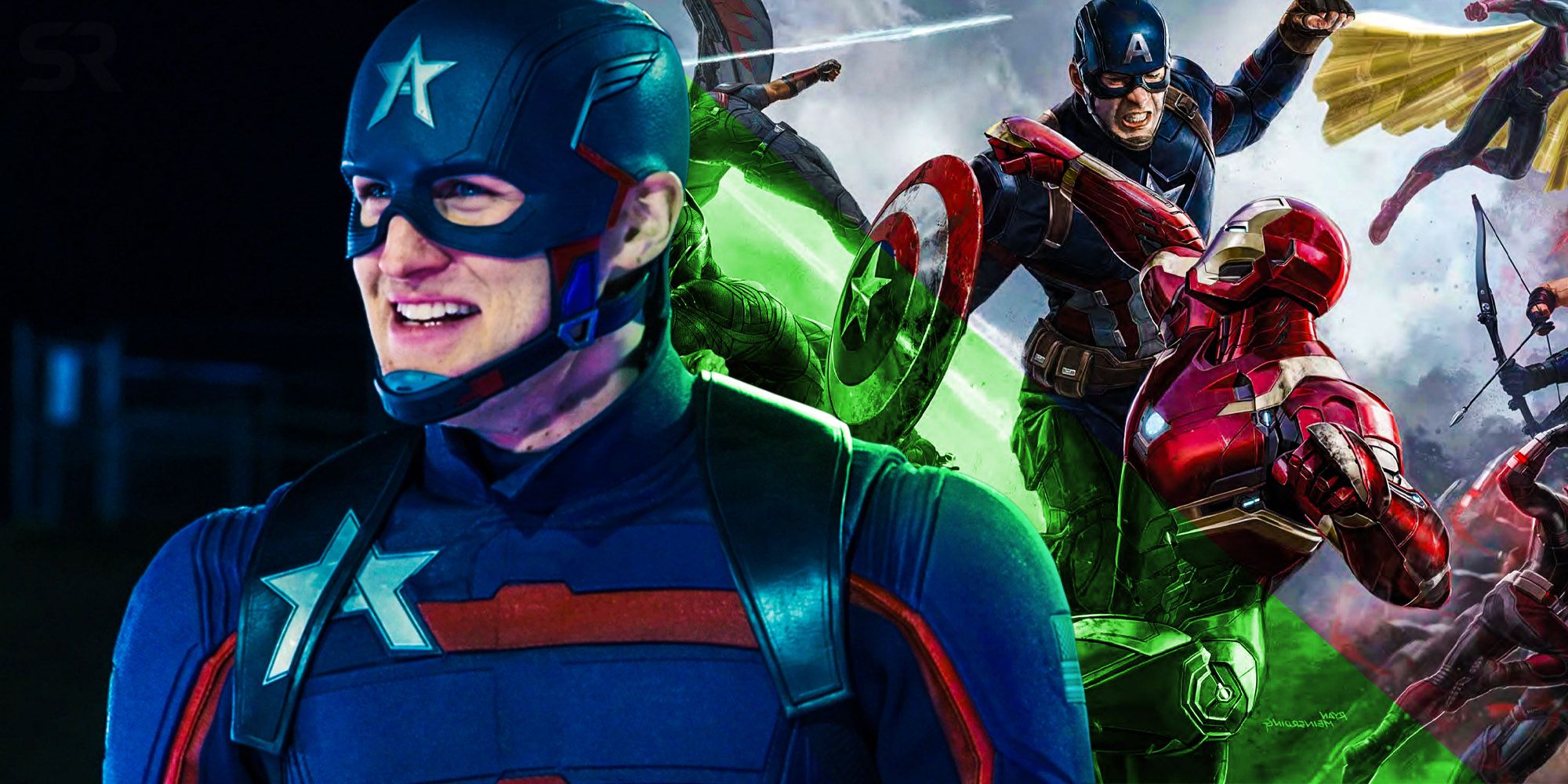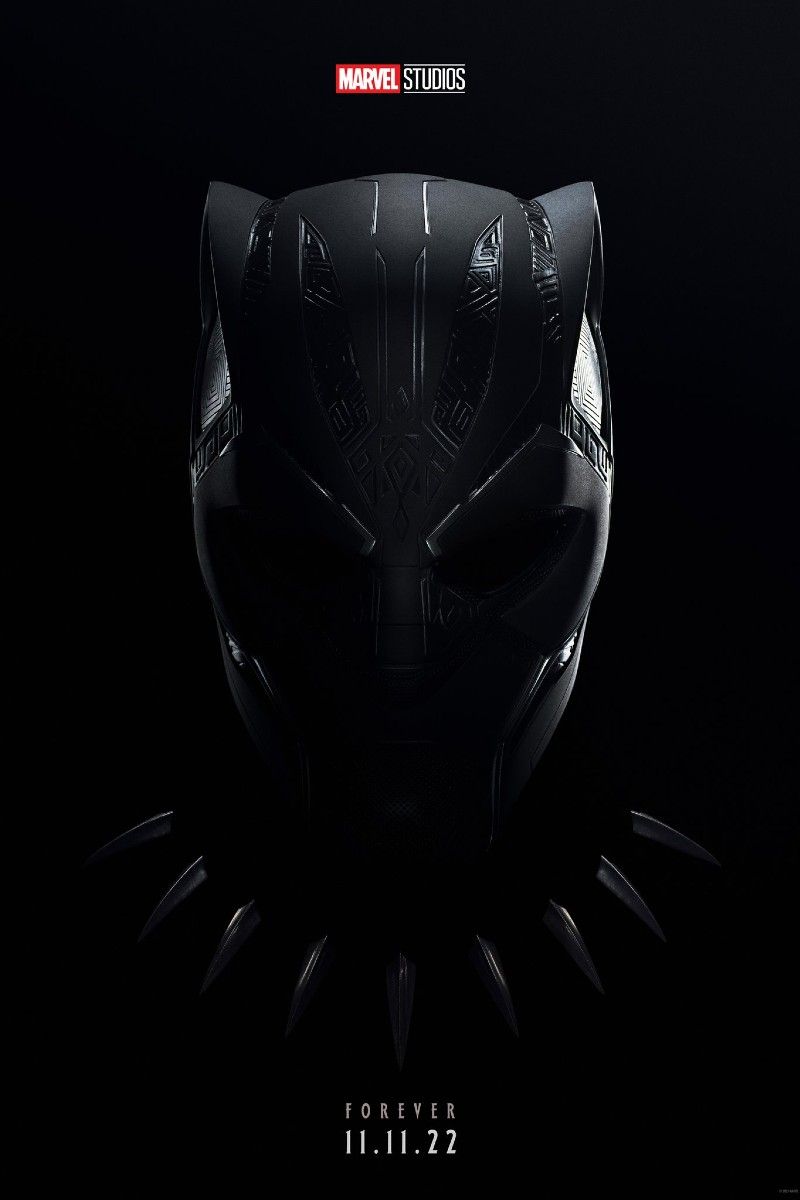The second episode of The Falcon and the Winter Soldier raises an intriguing point about the use of violence in the MCU, and the problems that it can cause. When John Walker, the new Captain America promoted by the U.S. government experiences insecurity before a public appearance, he's reminded that "You can’t just punch your way out of your problems." It's a theme that lingers through the episode. Notably, while the characters who are examined are heroic, their regular use of violence has left them with undesired consequences, and ambivalence about their actions.
This conversation is especially relevant considering the original Phase 1 movie lineup. Iron Man explores Tony Stark's status as an arms manufacturer who reacts badly when confronted with the consequences of his actions, and The Incredible Hulk eschews confrontation so nobody will be hurt. Thor's character arc in the MCU begins with him learning both humility and that violence should not be treated lightly. While all of these films have violence involved in their conclusions, it is not treated lightly; contrasting with sequels and subsequent films, where violence is considerably more casual, and consequences are not as explicitly explored.
The MCU has a dichotomy in its messaging; while not seeking to exclusively glorify violence, all of the Avengers are killers, with Hawkeye and Black Widow being targeted killers. This impacts the different characters in distinct ways, and The Falcon and the Winter Soldier shows the tack-on cultural effects. The Flag-Smashers are specifically seeking Super-Soldier enhancements as the only way that they can advance their cause. Even Sam Wilson, the Falcon, was originally in the military as a pararescue specialist; as a Secret Avenger, Falcon was put into a position more suited for offensives than the recovery and medical treatment of personnel.
Since these roles and the messaging behind them have shifted, it's interesting that The Falcon and the Winter Soldier is now choosing to refocus on those changes in particular. While a common comparison is made to Captain America: Civil War, when Natasha asks Steve, "Do you really wanna punch your way out of this?," that film discussed collateral damage and personal loss. That's one part, but not the whole, of the issue. Already, the issue of Bucky's regrets for the people that he hurt as the Winter Soldier has arisen as a major plot point, as has conflict over the idea of whether Captain America is more important as a symbol or as a hero. The characters in The Falcon and the Winter Soldier are tired, wounded in both body and spirit, and not coping especially well in the daily life of being a superhero and human at the same time.
The Falcon and the Winter Soldier is trying something new and nuanced, and should be applauded; while not shy on action or adventure, it is trying to also be a human drama. The longer-form sequence of the TV series lets the camera linger longer on human moments, and gives these characters a chance to react to their own actions after the most intense moments have passed. Because of this, it shows a side of the increasingly violent society the MCU is portraying that doesn't often get shown - the heroes themselves trying to pull out of the cycle of violence. Balancing this is a delicate act, not wanting to destroy either the humanity or the fun action that has made The Falcon and the Winter Soldier a fun but thoughtful series.








